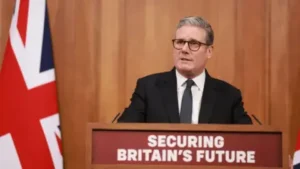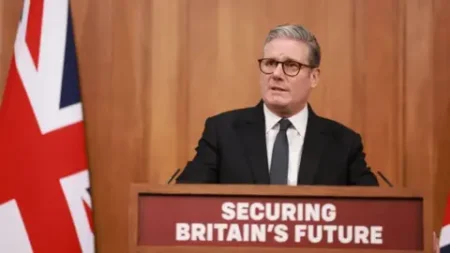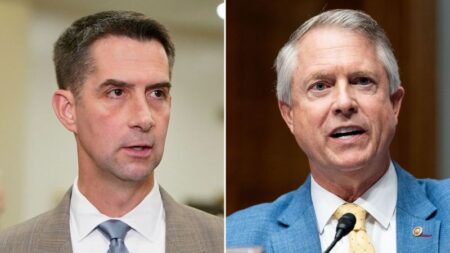In a revealing interview, Simon Case, the former Cabinet Secretary, criticized the Labour Party’s preparedness when they came into power, asserting that not enough thorough reflection had been carried out regarding their plans prior to assuming office. Case, who served four different prime ministers and held the UK’s top civil servant position from September 2020 until December 2024, highlighted that key decisions and communications were not effectively established at the outset of the Labour government led by Sir Keir Starmer.
Case mentioned during his appearance on the BBC that there were significant gaps in how the government articulated its agenda during the crucial early days. He emphasized that Starmer’s team, including prominent advisors, had a clear vision but struggled to convey this effectively across various governmental sectors. Nevertheless, he made it a point to clarify that he did not perceive the situation as chaotic, which sometimes is typical of transitions between governments.
As the Cabinet Secretary, Case was tasked with advising the Prime Minister and spearheading the implementation of government policies while managing senior civil servants. His assessment reflected on how these responsibilities unfolded, especially during politically tumultuous moments, such as riots triggered by violent incidents in Southport and controversies surrounding ministerial acceptance of gifts.
The Labour Party had just won the general election, and with that transition came challenges, including social unrest and a shake-up of governmental personnel. In his first detailed commentary on Labour’s early government period, Case responded affirmatively to inquiries regarding whether sufficient contemplation had occurred over their initiatives. He characterized some aspects of the government’s planning and communication as lacking, indicating that the central government team had specific objectives but had not communicated them well enough to carry out their responsibilities effectively.
Turning his attention to the scandals that befell the administration, particularly concerning issues of gifts and hospitality, Case depicted these as instances of “naivety” on the part of Sir Keir and his team, which underscored a very challenging time since it involved the private lives of the Prime Minister’s close allies. Furthermore, the departure of Sue Gray, who was appointed as Starmer’s chief of staff, raised eyebrows.
Gray previously gained notoriety as a civil servant who oversaw investigations into controversial lockdown parties during Boris Johnson’s tenure. Case described her hiring as “unusual,” and he noted the significant controversy it stirred within civil service ranks. He pointed out that Gray’s late transition into the Labour team left them somewhat unprepared due to the proximity to the general election.
Following Gray’s exit, which was officially communicated as her voluntary departure, Case remarked on the appointment of Morgan McSweeney as a subsequent chief adviser, which he viewed favorably. He praised McSweeney’s acumen as a political strategist, asserting that his presence immediately benefited governmental operations.
Pat McFadden, a cabinet minister, echoed these sentiments, suggesting in another BBC interview that the decision to part ways with Gray stemmed from a realization that her approach might not align with the evolving needs of Starmer’s administration. He suggested that such decisions demonstrated Starmer’s willingness to act whenever he believed a strategy or personnel was ineffective.
Case’s and McFadden’s interviews are featured in the BBC Radio 4 documentary *Starmer’s Stormy Year*, which provides an analysis of the Labour Party’s turbulent initial period in government, exploring the challenges and missteps made by its leadership as they navigated through complex political terrains. This discussion sheds light on the broader implications for governance, particularly the importance of clear communication and strategic planning as essential components of successful leadership in politics.











